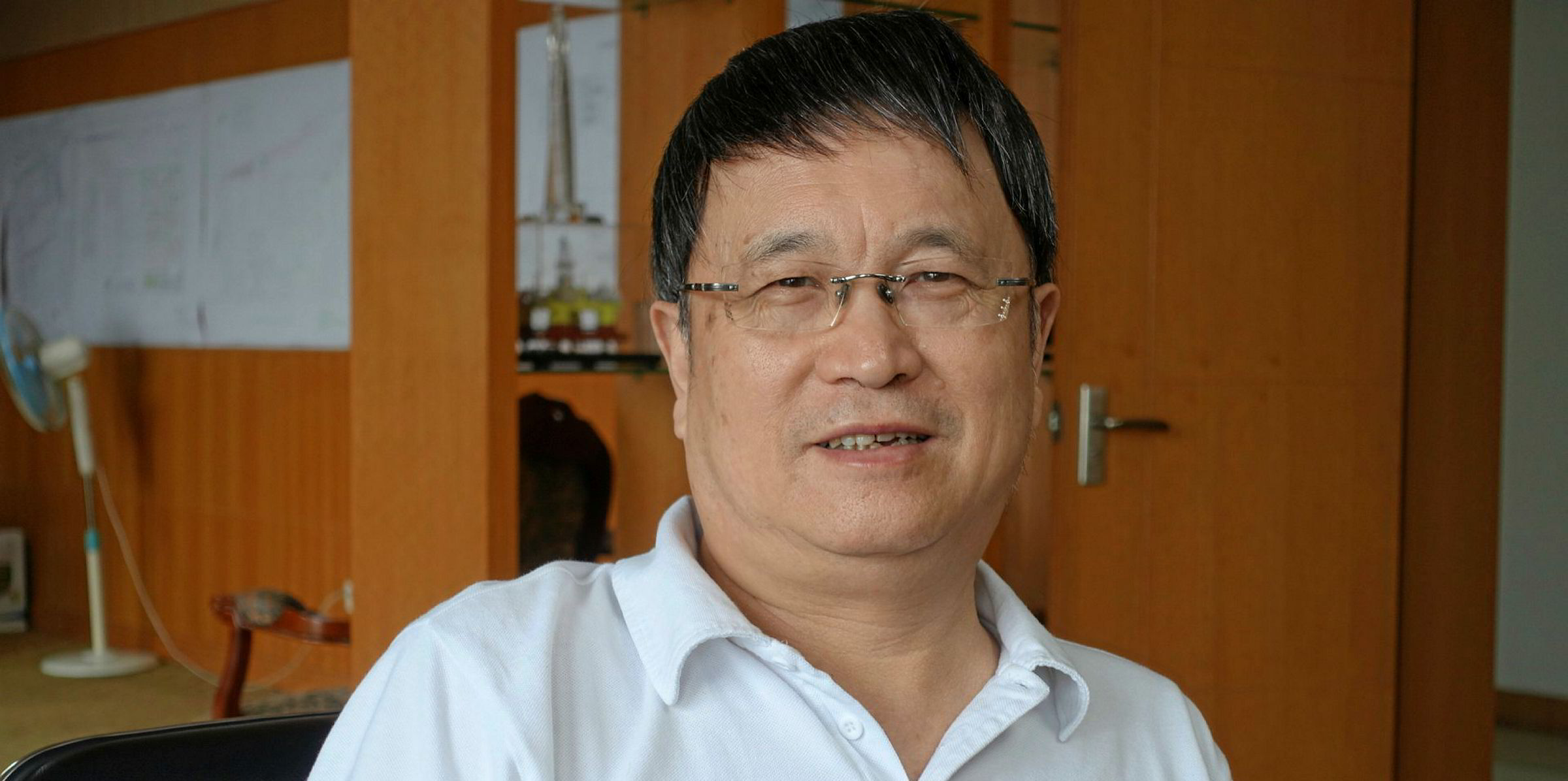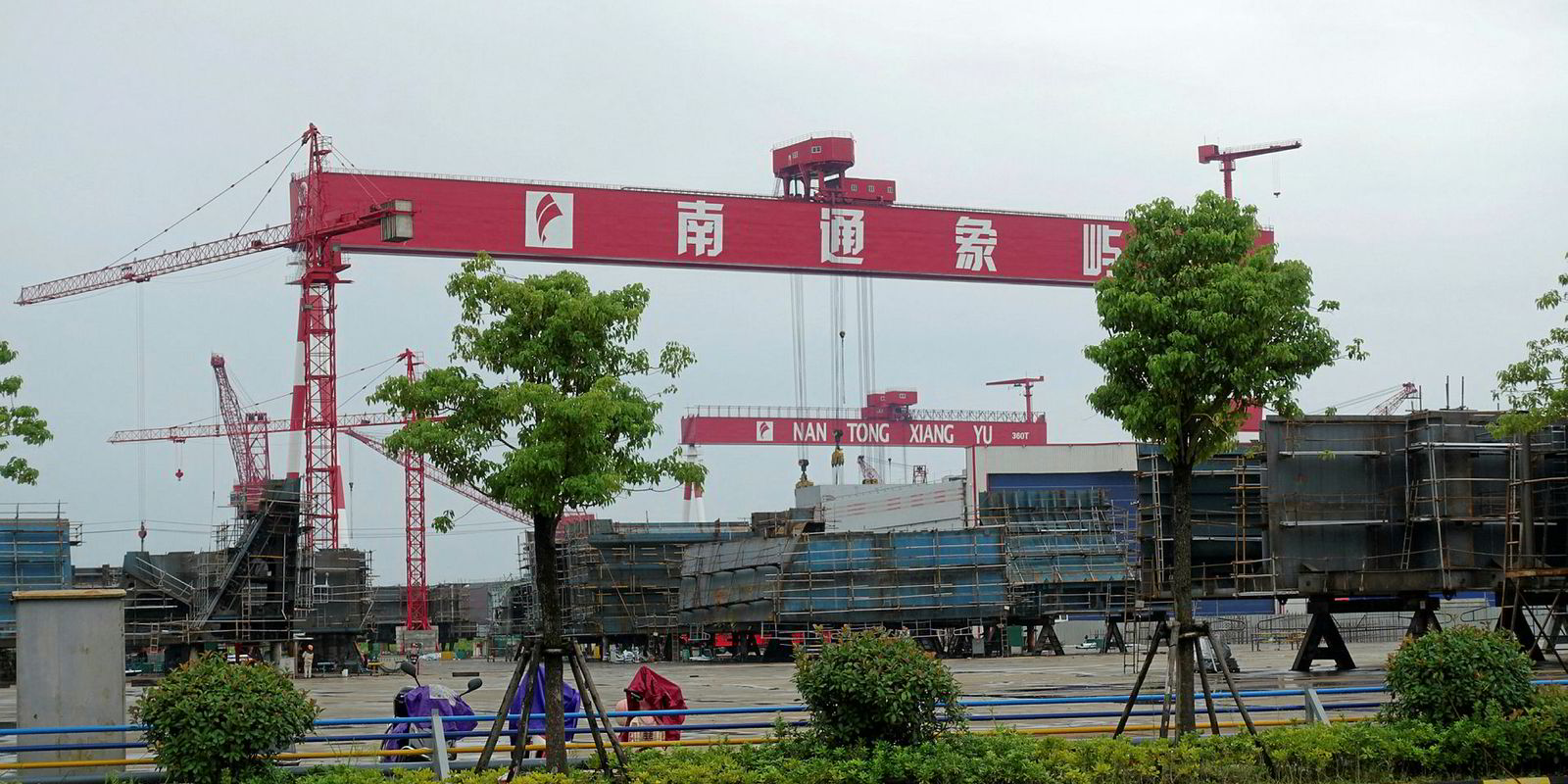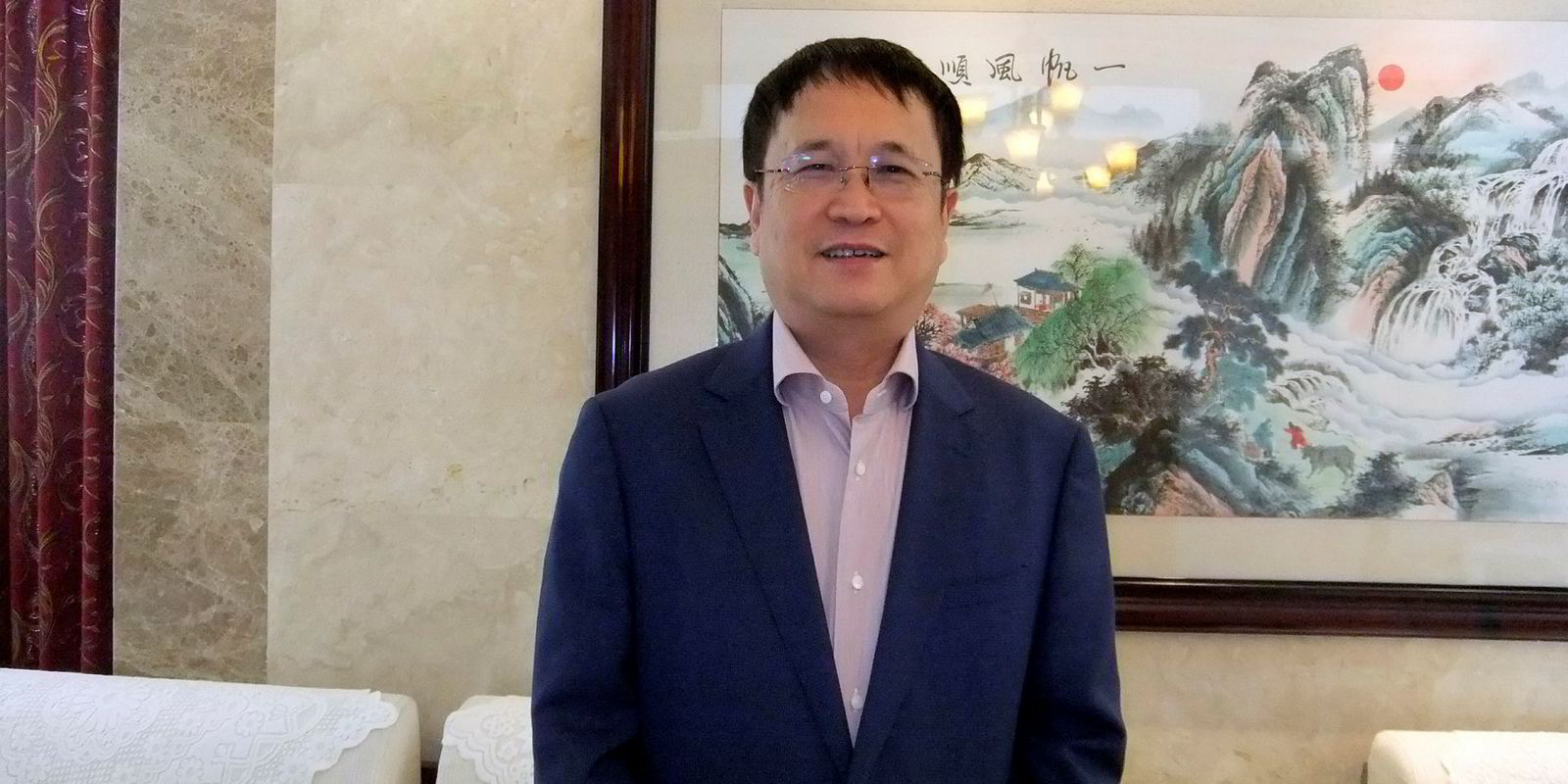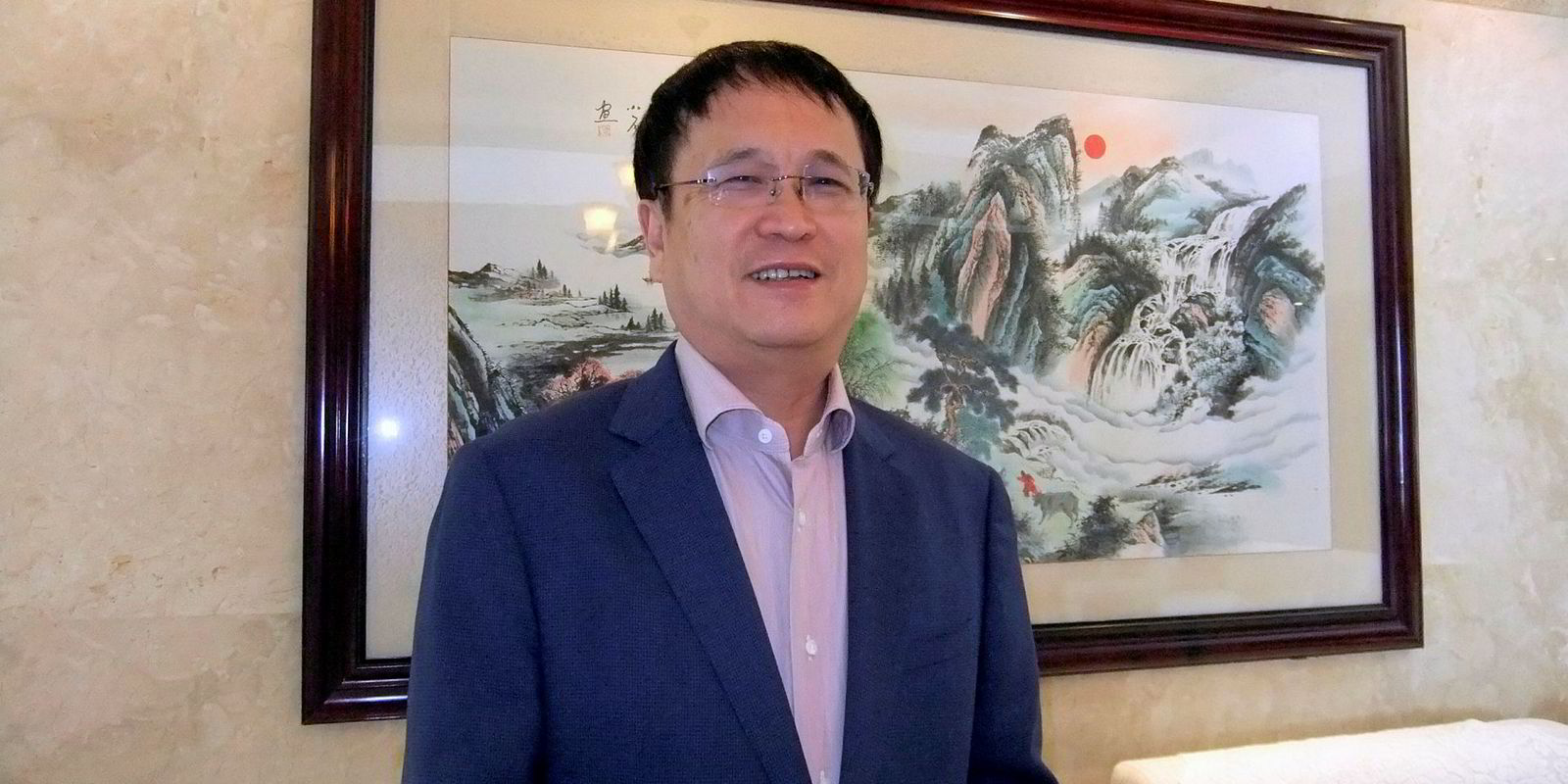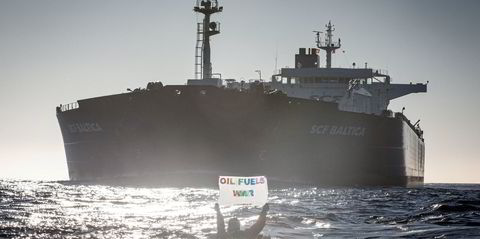Singapore-listed Yangzijiang Shipbuilding Holdings is not content with just winning newbuilding contracts, constructing the vessels and delivering them on time. The Chinese shipyard is seeking other business opportunities to lift the company’s earnings.
“Shipbuilding is not that profitable these days,” claims executive chairman Ren Yuanlin. “Because of that, I am always thinking of ways to make additional profit for the company.”
The purpose of this new company is to allow YZJ [Yangzijiang] to construct some newbuildings, and upon delivery Mitsui will handle the vessels’ employment activities or resale
A push to diversify has seen Yangzijiang recently join forces with Japanese trading house Mitsui & Co to form a joint venture. The pair are investing $13.2m in the Panama-registered company. The Chinese shipbuilder is looking to take advantage of Mitsui’s extensive shipping experience and its access to worldwide shipowning companies and charterers.
“The purpose of this new company is to allow YZJ [Yangzijiang] to construct some newbuildings, and upon delivery Mitsui will handle the vessels’ employment activities or resale,” says Ren.
“Constructing a vessel takes some time, and during the interim period Mitsui can arrange charter employment for the newbuilding or resell it if there is a good offer. If the vessel is not fixed out, we can always trade it ourselves.”
Shipowning in Singapore
Yangzijiang is not new to shipowning. Its Singapore-based Yangzijiang Shipping controls around 10 bulk carriers that range in size between ultramax and post-panamaxes.
Yangzijiang Shipping was a “reluctant shipowner” as the company was formed to take control of newly built vessels that shipowners failed to take delivery of for non-payments. This was common after the 2008 Lehman Brothers collapse, which saw the dry bulk market plunge to a historical low.
Ren says the new Mitsui venture is behind a 82,000-dwt kamsarmax bulk carrier that is under construction at Yangzijiang. The newbuilding is slated for delivery during the first half of 2020.
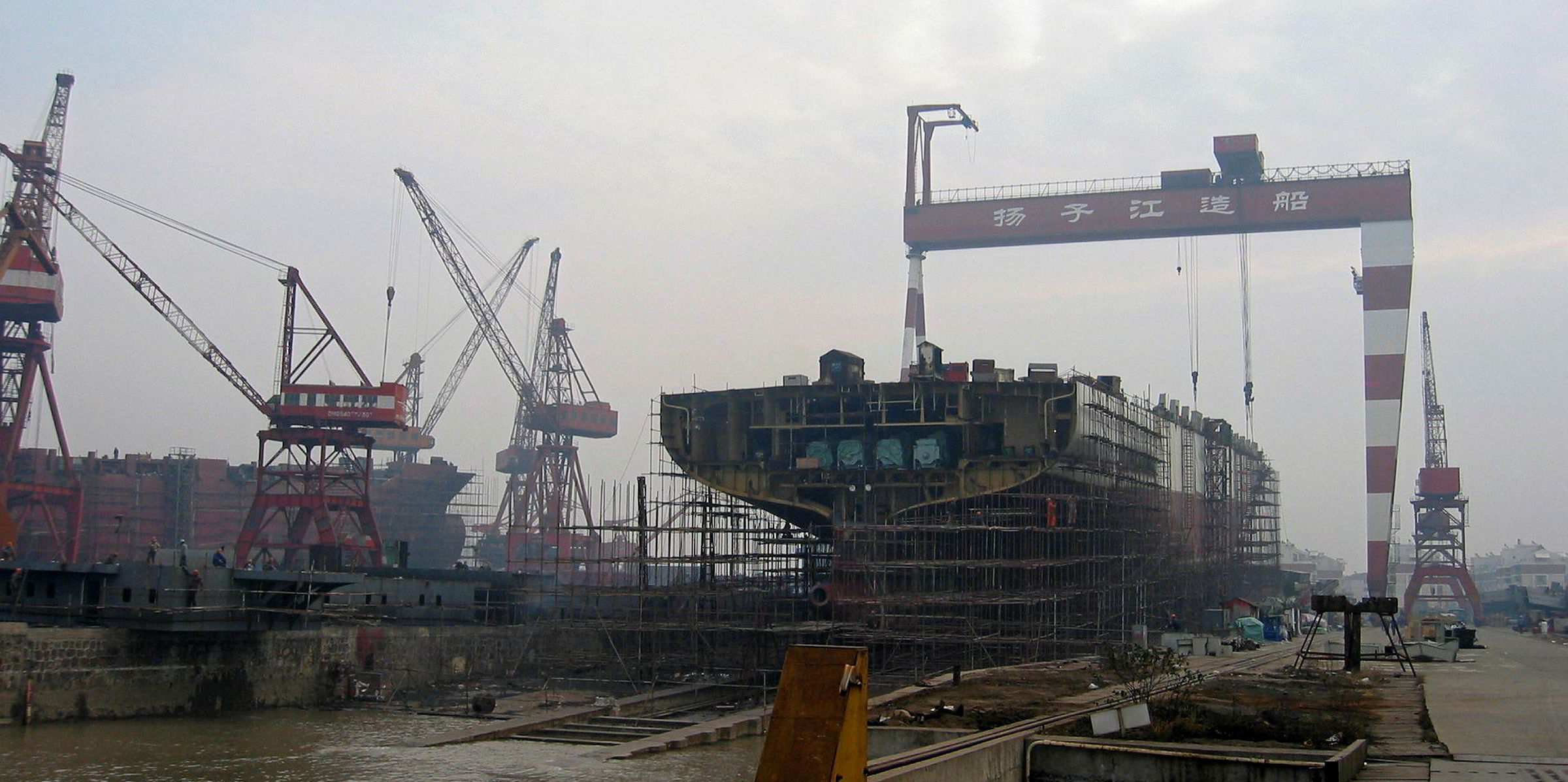
Mitsui & Co's role
Speaking on Yangzijiang'srelationship with Mitsui, Ren says the trading house is an existing client of the shipyard. Mitsui currently has five kamsarmax and three newcastlemax bulker newbuildings under construction there.
“We chose Mitsui because we have been working with the company for some 30 years,” says Ren. “During the early days, Mitsui was involved in the small containerships and bulk carriers that Peter Dohle ordered in Yangzijiang. The trading house also carried out some resale vessels that our shipyard built. In this joint partnership, Dohle is engaged in supervising in the vessels construction.”
Ren says that he is looking forward to working with Mitsui in value-added vessels, such as LNG carriers and LNG-fuelled vessels in the near future.
Besides targeting the international market, Yangzijiang has also got its eyes fixed on domestic trades. In August, the shipbuilder acquired the remaining 40% of Jiangsu Huayuan Logistics, which is involved in leasing and chartering vessels. Huayuan also has a shipping arm in Shanghai that owns cargo transportation. Yangzijiang says the purchase of Huayuan fits with its strategy to diversify beyond shipbuilding.
“Huayuan is engaged in coastal transportation and it currently has four 47,500-dwt bulk carriers,” says Ren. “The company has stable trading routes and income. There is a plan to expand Huayuan with secondhand vessels when the opportunity is right.”
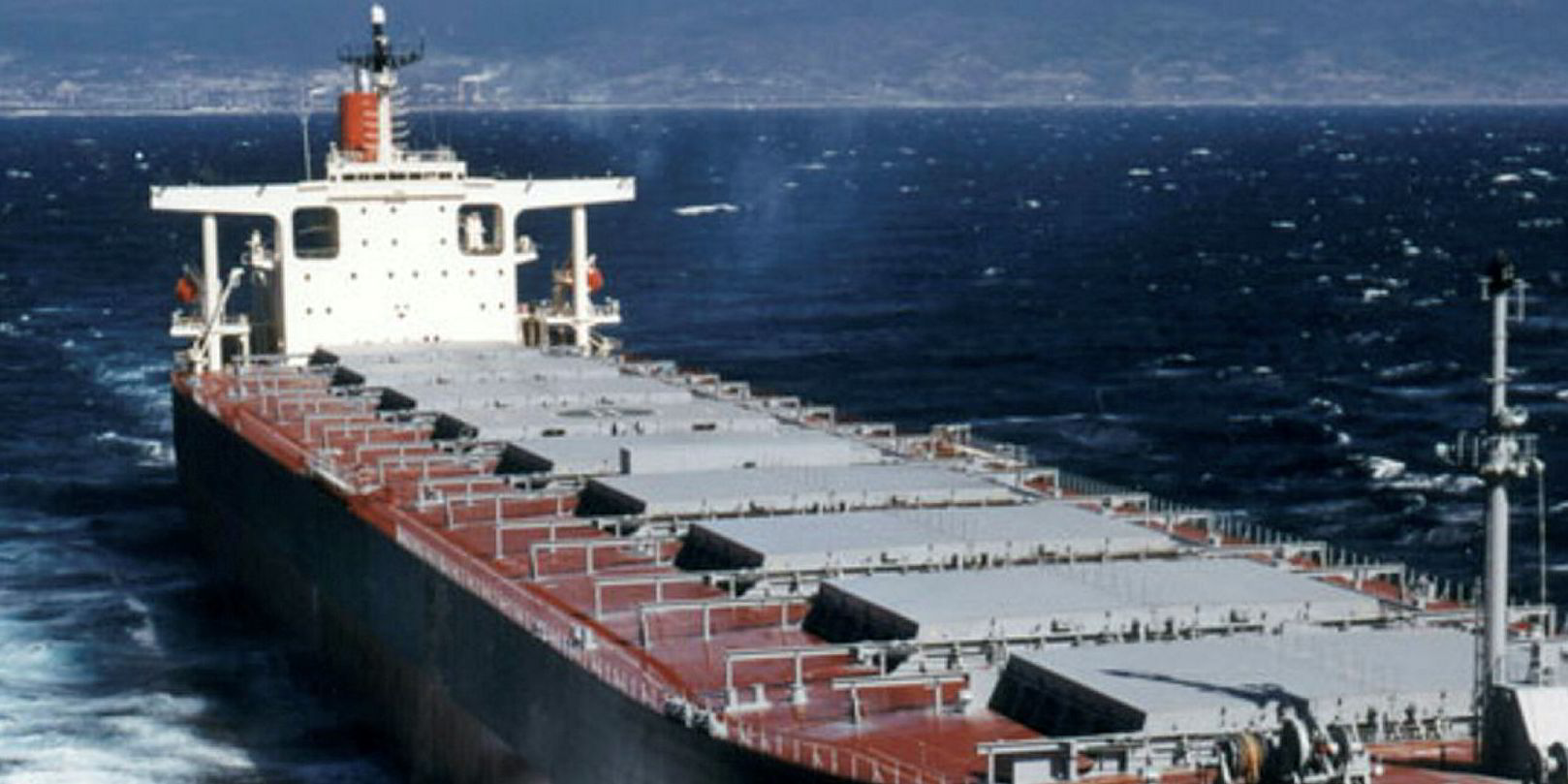
Fleet growth
As a matter of fact, Huayuan will see its fleet increase by around 40% at end of this year when it takes delivery of a 80,000-dwt bulker.
“The 80,000-dwt vessel is a half-built ship that YZJ [Yangzijiang] bought from a collapsed shipyard called Zhenjiang Shenghua at a scrap-value price of CNY 50m [$7.2m]. We are spending another CNY 50m to finish building the ship. Once it is completed, the bulk carrier will have a market value of more $20m,” discloses Ren. “If there is a buyer for this vessel, we will sell. Otherwise, we will be trading the bulker ourselves.”
Zhenjiang Shenghua’s bulk carrier is the third half-built vessel that Yangzijiang acquired from collapsed Chinese shipyards.
Last year, it spent around $10m to take over a half-constructed 157,000-dwt suezmax tanker newbuilding that was dry docked at Jiangsu Rongsheng Heavy Industries. It also bought Nantong Mingde Heavy Industry’s half-built, 31,200-dwt gearless multipurpose (MPP) vessel for around $14m. It finished building the MPP and sold it to Canada's Algoma Central for around $20m.
As for the suezmax, Yangzijiang estimates it is spending an additional $25m and $30m to complete the vessel, which is scheduled for delivery next year. Shipbrokers estimate that upon completion the crude carrier will be worth a price in the high $40m.
Yangzijiang will not only pocket close to a $10m profit by finishing the 157,000-dwt ship, but the vessel will also give the yard an entry point into suezmax tanker construction. Yangzijiang is known in the shipbuilding industry for building containerships and bulk carriers.
“If we are not able to find the right buyer for the suezmax tanker, we can also operate the vessel ourselves,” adds Ren. “Buying half-built vessels at scrap value price and finishing building them is one of the ways that allow our company to grow and bring in additional profits to our shareholders.”
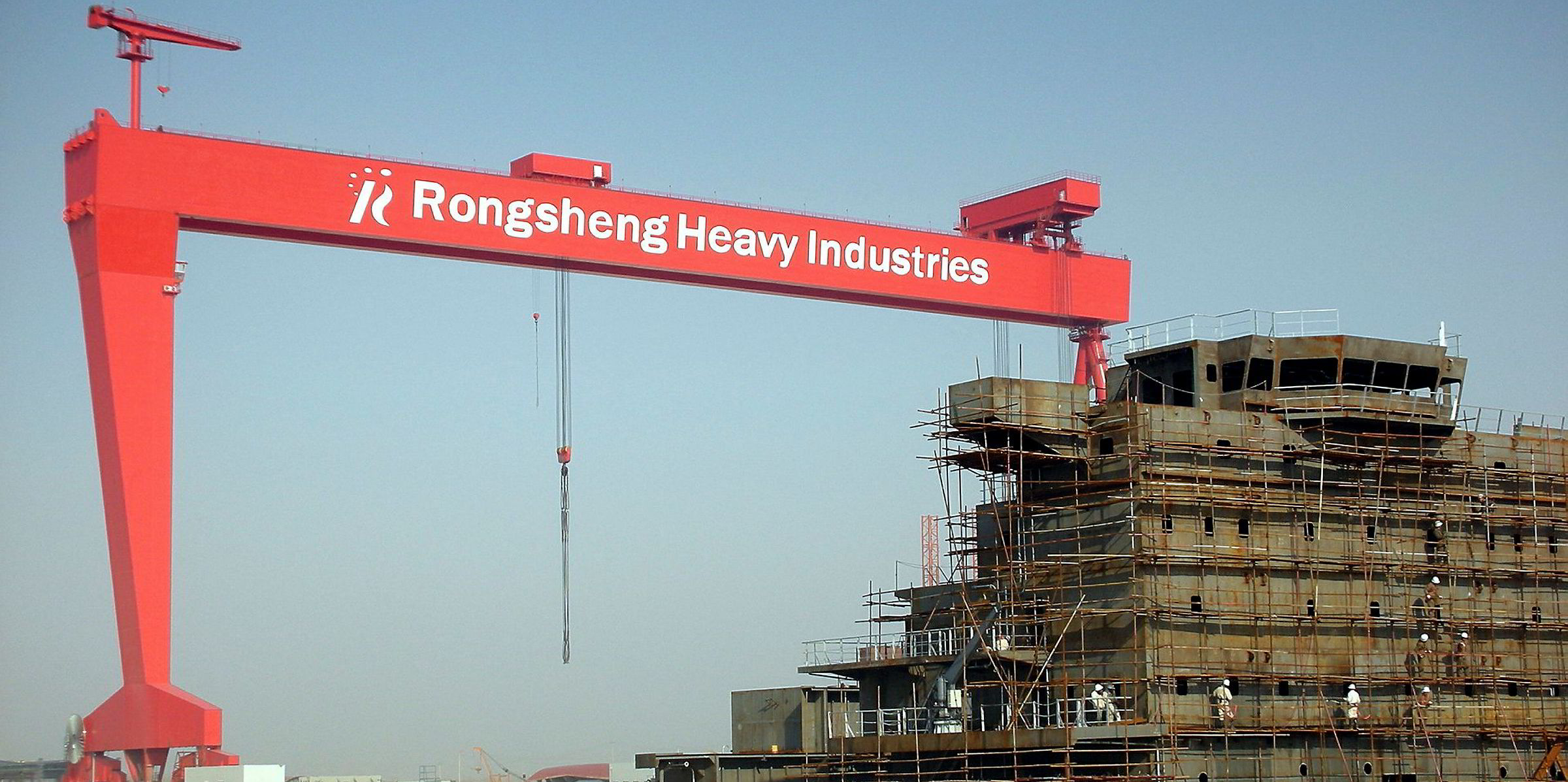
Ren claims there are few companies in China that can do such projects.
“To be able to finish building the vessel, one needs a shipyard. He also needs to have the financial means to support the ship as banks will not help finance half-built vessels. Lastly, there may be no buyer for the completed ship and that means the owner has to trade the vessel himself,” he says.
“China’s two state-owned shipbuilding groups, China State Shipbuilding Corp and China Shipbuilding Industry Co have the abilities ... but they will not get involved.”
